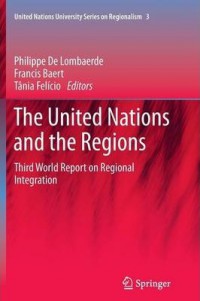Introduction

In an increasingly global but concomitantly regionalised world, global governance and the work of the global body – the United Nations (UN) – are no longer made up solely of interstate cooperation. New forms of governance emerge with consequences in the global arena, and clearly regional governance is one. Regional governance has been in ascendancy in the past few decades (or definitely so since the end of the Cold War) in various fields, namely economy, trade, finance, health, development, environment – and very clearly so – in peace and security. The influence of this new form of governance (whether it is based on cooperative arrangements or deeper integration) on the development, the present management and the foreseeable reforms of the global body deserves a closer look.
